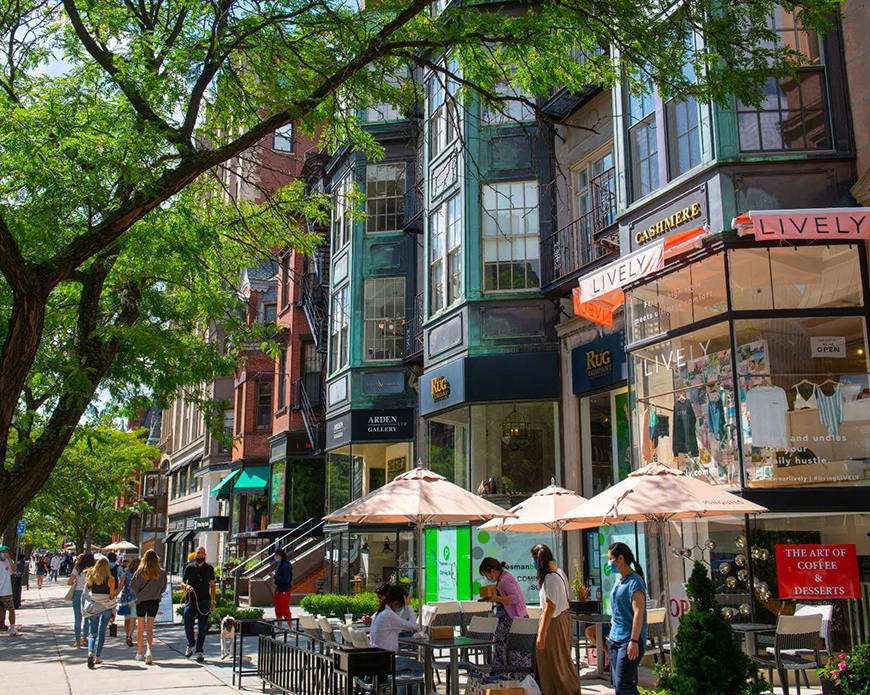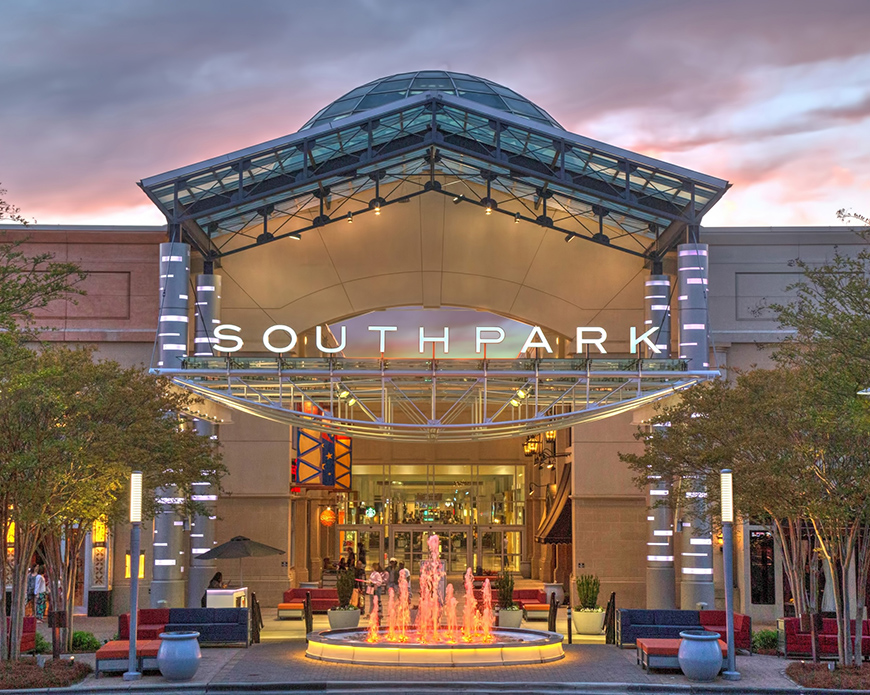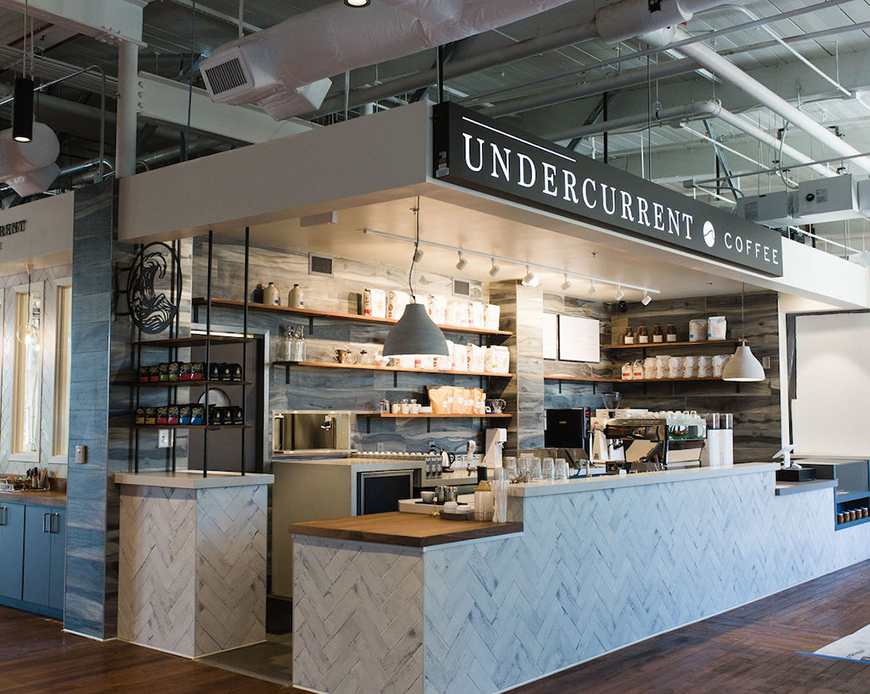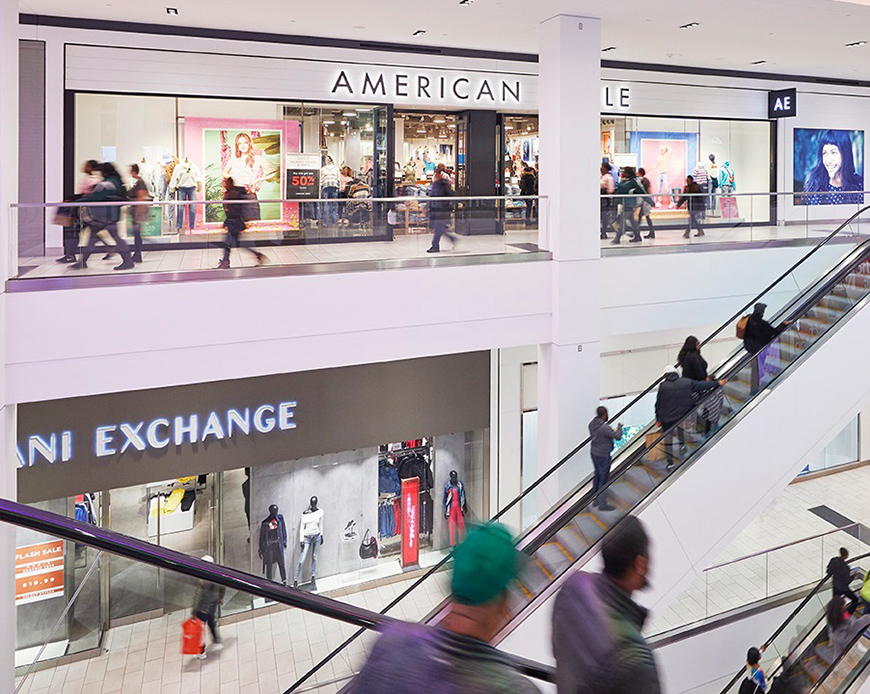Boston remains one of my favorite cities in the U.S. to shop like a local. Having spent several weeks living there over multiple visits, I’ve developed a deep appreciation for not just the iconic tourist malls, but the curated boutiques, hidden gems, and traditional markets that truly reflect the city’s character.
I’ll take you through four modern shopping centers I’ve visited in Boston—including the names, locations, standout stores, and my personal experience—plus two traditional markets ideal for souvenirs and local flavor. You’ll find boutiques featuring Boston designers, local artisans, noteworthy service experiences, any discounts or insider tips, and honest pros and cons throughout. Let’s dive in.
1. Newbury Street Boutiques & Chestnut Hill’s Shopping District
Location: Newbury Street (Roughly 100–200 Newbury St., between Boylston and Arlington), and complementary Chestnut Hill Mall area (main stores along Boylston Street near Copley).
What makes it special:
Newbury Street is the fashion spine of downtown Boston—tree‑lined sidewalks, stately brownstone storefronts, and a mix of international brands and local boutique labels. Nearby Chestnut Hill is a slightly more compact shopping district but excellent for quiet exploration.
Stores I Visited:
Taza Chocolate Boutique at 189 Newbury St.
A local chocolatier based in Somerville, they create stone‑ground chocolate in small batches. I sampled crunchy chocolate bars infused with sea salt and coffee. Service was friendly and energetic, with tastings offered freely. I bought a bean‑to‑bar souvenir gift pack at 15% off if you spend over $30. The packaging is minimalist, perfect as a refined gift.
Pros: Unique product, excellent free tastings, great packaging.
Cons: Slightly pricey per ounce.
My impression: I loved how tactile the chocolate is—grainy, aromatic—and appreciated the staff who explained the origins of the beans.
Modcloth Chestnut Hill on Boylston St.
A buzzy boutique featuring vintage-inspired indie fashion and accessories. The staff helped me pair a retro-style dress with locally made jewelry. They were running a “buy 2, get 1 50% off” summer sale, and I saved around $40. Changing rooms were spacious, and staff offered styling advice.
Pros: Fun fashion, good quality, welcoming service.
Cons: Sizes can be inconsistent; returns are online only.
My impression: I felt like a local fashion friend was helping me shop.
Mast Draper (on Boylston near Newbury)
This boutique carries high-end casual menswear, including their own Boston-made jeans. I browsed premium Ts and blazers. The staff offered denim customization and hemming on-site. There was a 10% discount if you signed up for their mailing list, which I did. A high-end yet approachable store.
Pros: Locally made quality, custom tailoring, helpful service.
Cons: Pricey, but fair for tailoring included.
My impression: It’s a boutique with pride in craftsmanship, and I loved the personal touch when they walked me through their manufacturing process.
Overall experience:
Strolling Newbury and Chestnut Hill made me feel part of a city that balances fashion sophistication with approachable local charm. Perfect for window shopping or splurging on a unique Boston wardrobe piece.
2. Seaport District’s Box District & ICA Boutique
Location: Seaport Boulevard and nearby Channel Center Street; shop inside Institute of Contemporary Art (ICA) at 25 Harbor Shore Drive.
What sets it apart:
Boston’s Seaport District has become a hub of modern boutiques, art studios, and sleek waterfront shops. It offers a more contemporary, minimalist aesthetic than Newbury Street.
Stores I Visited:
The ICA Shop at the Institute of Contemporary Art
Located within the ICA building overlooking the harbor, this boutique carries design-forward homewares, stationery, art books, and jewelry. I bought a ceramic candleholder made by a Boston craftsperson. The staff packed it carefully for travel, and they offered a 10% discount if you’re an ICA member or museum ticket holder. Helpful—and artfully arranged.
Pros: Curated, unique items, connection to local artists.
Cons: Price tags are higher than typical souvenir shops.
My impression: Shopping felt museological—beautiful, thoughtful, inspiring.
The Box District Pop-Up Shops (in the Seaport)
This area hosts rotating shipping container boutiques featuring fashion designers, tech accessories, and artisan goods. I explored “So Boston” one weekend, where vendors sold leather goods, locally printed scarves, and made‑in‑Massachusetts leather bags. I picked up a handmade leather keychain with “Boston” stamped in gold; the vendor offered a small 5% discount if you follow their Instagram and tag them.
Pros: Cool, rotating vendors, trendy vibe, waterfront views.
Cons: It’s seasonal; many pop-ups close in winter.
My impression: It felt like attending a local design market by the harbor at sunset—a highlight of local creativity.
3. Prudential Center & Copley Place
Location: Prudential Plaza at 800 Boylston St., and adjacent Copley Place on Huntington Avenue.
Why it’s notable:
These twin malls offer one of the most comprehensive shopping experiences in Boston—modern department stores, upscale boutiques, and direct indoor access to public transit. Ideal for mixed-objective shopping.
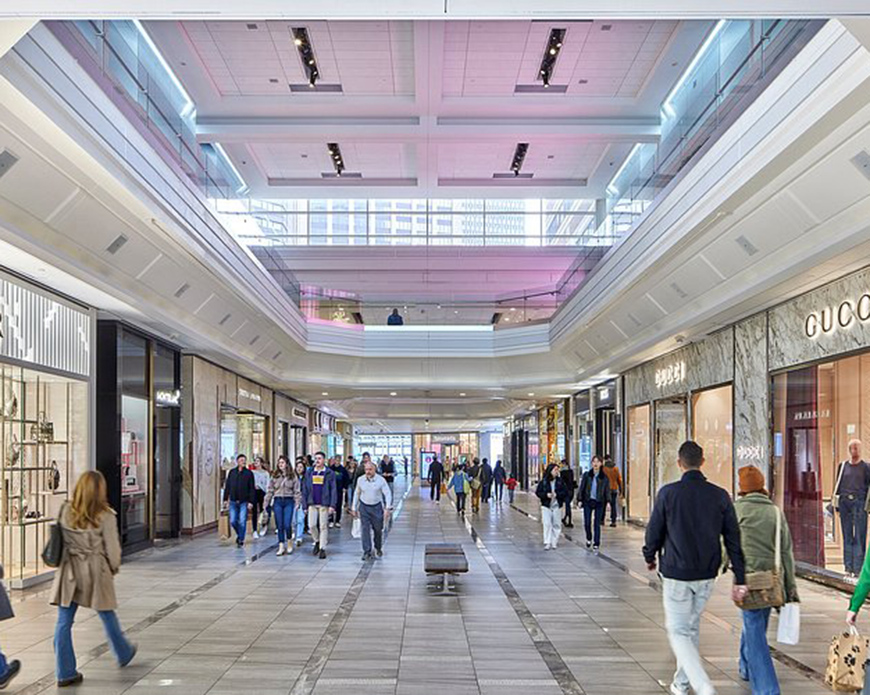
Stores I Visited:
Ralph Lauren Country Boutique (inside Copley Place)
Elegant, upscale, but still approachable. I tried on tailored jackets and scarves. The staff offered complimentary refreshments and a 10% “first-time shopper” discount if you signed up for their mailing list. The service was white-glove—typical of luxury brands, but still warm.
Pros: Premium service, easy returns, comfortable browsing.
Cons: Price is high; not for budget shoppers.
My impression: I declined a purchase but appreciated the personalized attention—I felt pampered even in window shopping.
Eataly Boston (inside Prudential Center)
More a culinary retail experience—high-end Italian groceries, kitchenware, and casual dining. I filled a basket with locally produced olive oil, pasta, and a small bag of biscotti. They offered free samples and a 5% discount for purchases over $50. The layout is vibrant with tastings and open cooking stations.
Pros: Delicious variety, tasting stations, great souvenir food.
Cons: Can get crowded at lunchtime.
My impression: I could have spent half a day sampling and buying gourmet goodies.
Overall location notes:
Both malls are connected to the Prudential and Copley MBTA Green Line stops. They’re also adjacent to Back Bay, Newbury Street boutiques, and the Boston Public Library, making them central hubs for mixed shopping and sightseeing days.
4. The Cambridge Galleria and Harvard Square Shops
Location: Near Porter Square across Harvard Bridge and along Massachusetts Avenue and Winthrop Street, Cambridge.
Why it’s hip:
Cambridge’s boutique district blends university culture with independent retailers and local designers, offering a different shade of Boston shopping.
Shops I Visited:
Harvard Book Store, 1256 Massachusetts Ave
A beloved independent bookstore with an attached boutique section selling Harvard-branded apparel and stationery. I bought a print of a vintage map of Boston and a notebook stamped with “Cambridge, MA.” Staff arranged gift wrapping and let me browse even after closing for another 10 minutes. Warm service, great curation.
Pros: Authentic local spirit, unique souvenirs, staff give reading recommendations.
Cons: Prices are mid-range for indie bookstores.
My impression: It felt more like visiting a friendly book-obsessed neighbor than a store.
Abatement Leather by Sylvie M
An artisan workshop-shop on Winthrop St. Sylvie personally guided me through custom options for leather goods—she let me watch her cut and stamp a small cardholder, dyed in Boston’s school colors. She offered a 10% discount if I selected local sports team colors (Boston Red Sox). The result was a finely crafted piece with my initials. I filled in an order and picked it up the next day.
Pros: Handmade, personalized leather goods; memorable experience.
Cons: Higher price and require pickup or shipping.
My impression: One of the most satisfying souvenirs I’ve ever bought.
Traditional Markets for Local Flavor & Souvenirs
5. Quincy Market & Faneuil Hall Marketplace
Location: 4 South Market Building, Faneuil Way between North and Devonshire Streets.
Why it’s traditional:
This historic market blends culinary stalls, souvenir kiosks, and local artisan shops under iconic red brick buildings. It’s busy, touristy—but also full of edible and giftable Boston flavor.
I browsed at Boston Chowder Company (clams-from-registered Massachusetts seafood, clam chowder in a souvenir bowl—with 10% off if you buy an extra chowder cup to go). I also visited Bostonian’s Delight, a stand selling local-themed mugs, T‑shirts, and magnets. Filters include “Made in USA” guarantees. I used a gift card I’d bought ahead and received a free magnet with a $25 purchase.
Pros: Central location, great for local food souvenirs, easy logistics.
Cons: Crowds, higher prices than artisan markets.
My impression: It’s touristy, but still fun for getting your Boston-themed magnets, and tastes.
6. SoWa Open Market
Location: 540 Harrison Avenue, South End. Open weekends (May–October).
What makes it special:
SoWa is a classic Boston artisan weekend market with local vendors, indie crafts, street food trucks, and pop-up vintage clothing stalls in an open-air converted industrial space.
I bought hand‑painted postcards from a local illustrator, a vintage map print, and a leather bracelet made from reclaimed bicycle tubes. The vendors were friendly and eager to explain their creative process. Most offered a small price reduction if you asked about the materials or to let them know you’re from out-of-town. Service felt personal—and every purchase was a story about the maker.
Pros: Handmade goods, interactive vendor stories, real local culture.
Cons: Only open in warmer months; can get busy.
My impression: One of the best ways to shop like a true Boston local—creative, relaxed, and authentic.
Tips & Advice for Budget-Conscious Souvenir Shopping
- Visit SoWa or the ICA Shop for unique artisan pieces rather than mass-produced souvenirs.
- Ask if there’s a local or student discount—many boutiques offer 5–10% off if you say you’re a visitor or student.
- Time your trip to align with First Fridays or local art events, when many boutiques host sales or giveaways.
- Use store mailing lists to unlock first-time purchase discounts—often 10% off at stores like Mast Draper or Modcloth.
- Buy small affordable items in upscale shops—e.g., stationery, scarves, or a small ceramic cup instead of full designer outfits.
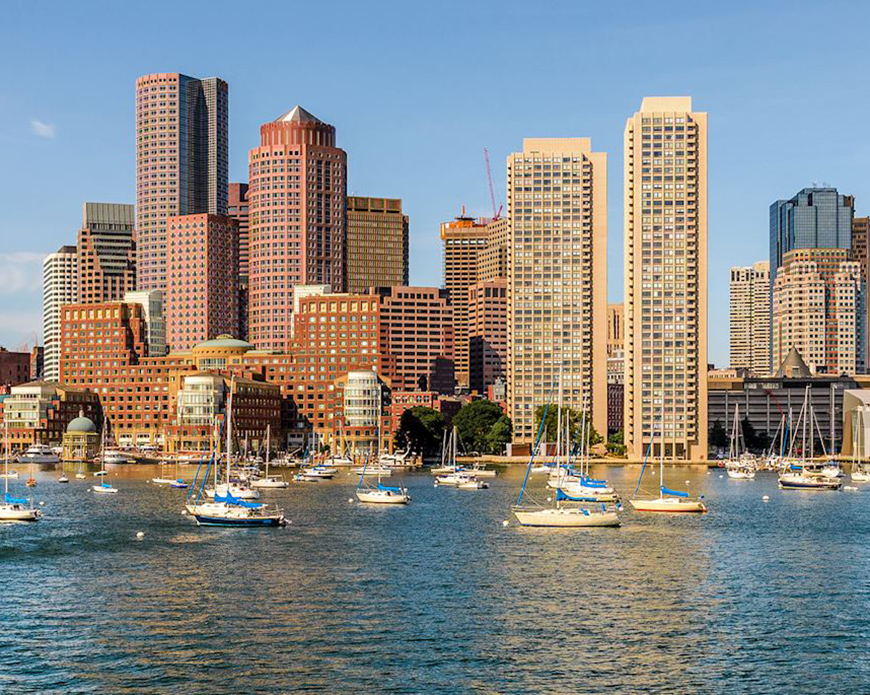
Shopping Like a Local in Boston
In Boston, shopping is as much about story, craft, and community as it is about the purchase. Whether I’m exploring the elegant brownstone boutiques along Newbury Street, the sleek container shops by the Seaport, or the artisan markets in SoWa and Harvard Square, every purchase comes with a layer of local pride and meaning.
My stay at citizenM Boston gave me a strong starting point for exploring these neighborhoods. From there, I ventured into design-rich stores, independently owned shops, and historic markets that told the story of Boston’s creative heart.
Shopping like a local isn’t about bulk bargains; it’s about discovering authenticity and supporting communities. I came home with a custom leather cardholder stamped in local colors, a vintage print of Cambridge, a chocolate bar with bean origin label, and a handmade postcard. Every item felt like a piece of the city itself.
The trade-off is a bit more cost and effort than buying standard souvenirs, but it’s deeply worth it. You buy with intention, celebrate craftsmanship, and take home something you’ll treasure, not just something that slots into a suitcase.
If you’re looking to shop Boston in a meaningful way—whether for fashion, art, or nostalgic keepsakes—trust your curiosity more than your map. Walk down unfamiliar streets, talk to vendors, carry a tote instead of a plastic bag, and buy something you’ll remember rather than ask for a refund. Boston’s boutiques and markets open when you’re present and curious—and that’s how you shop like a local.
